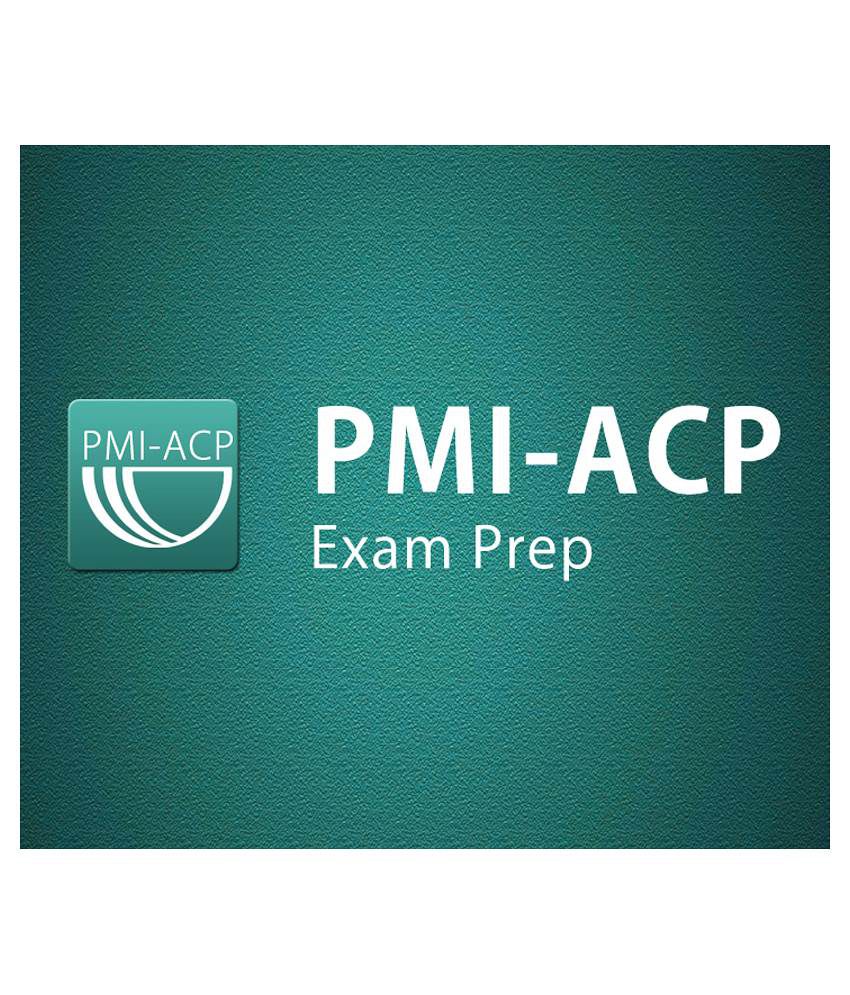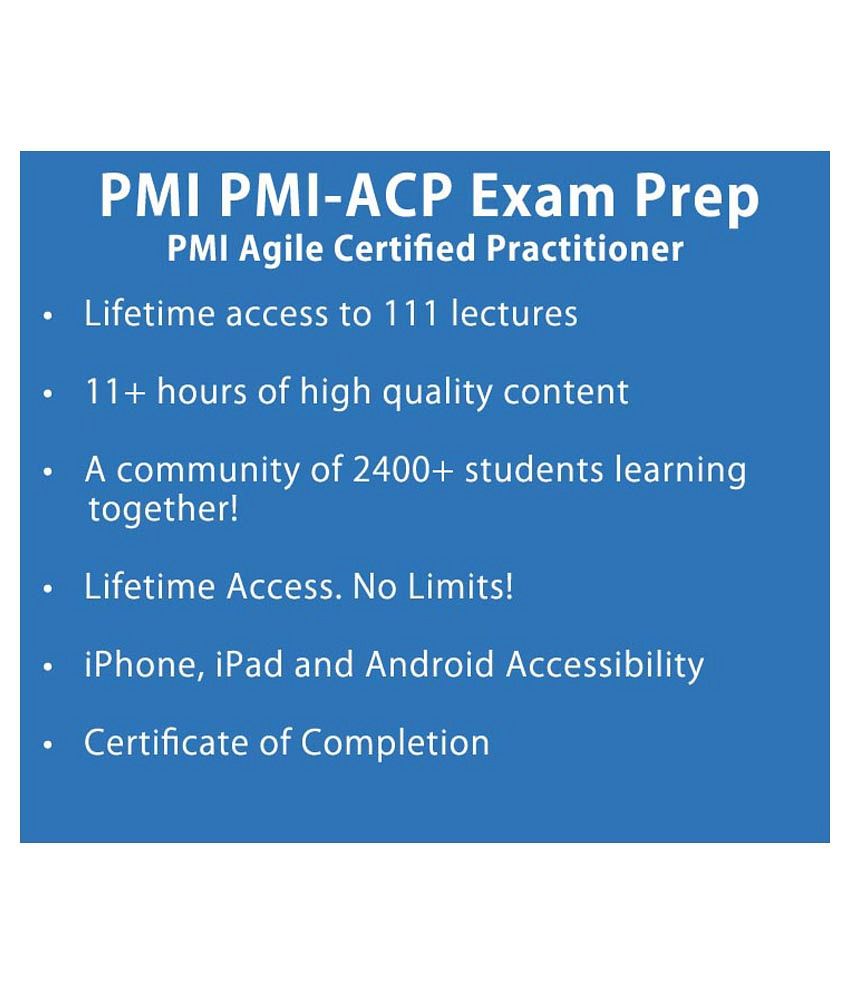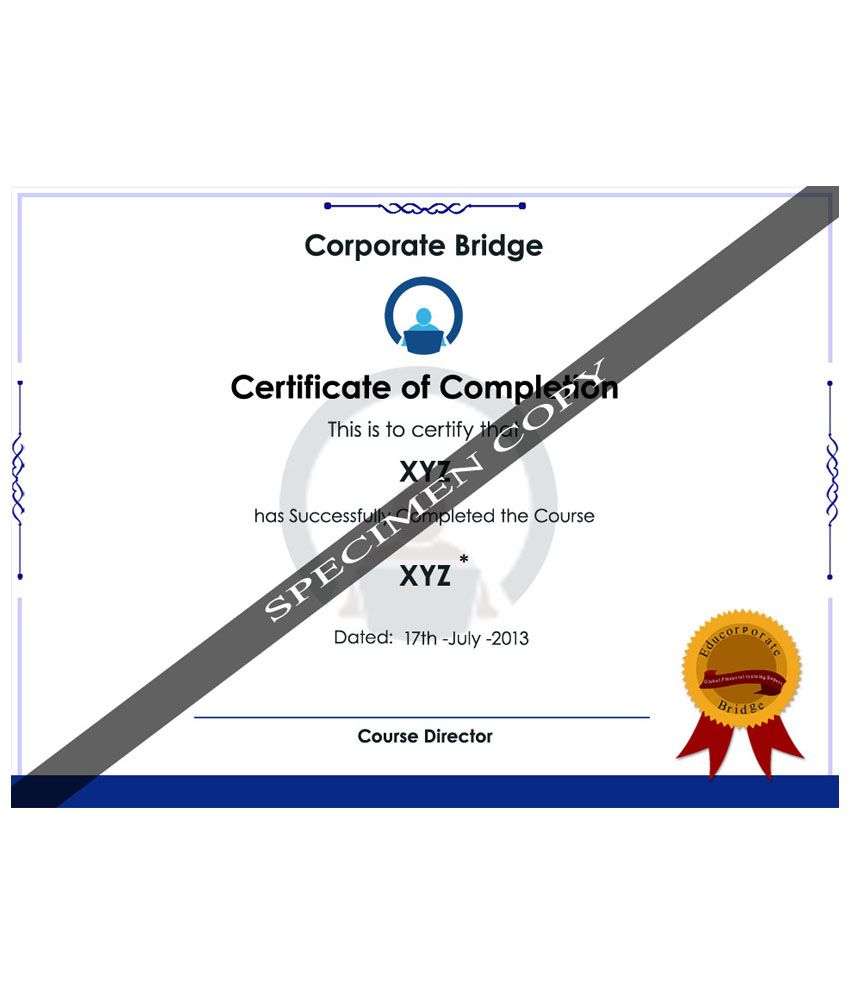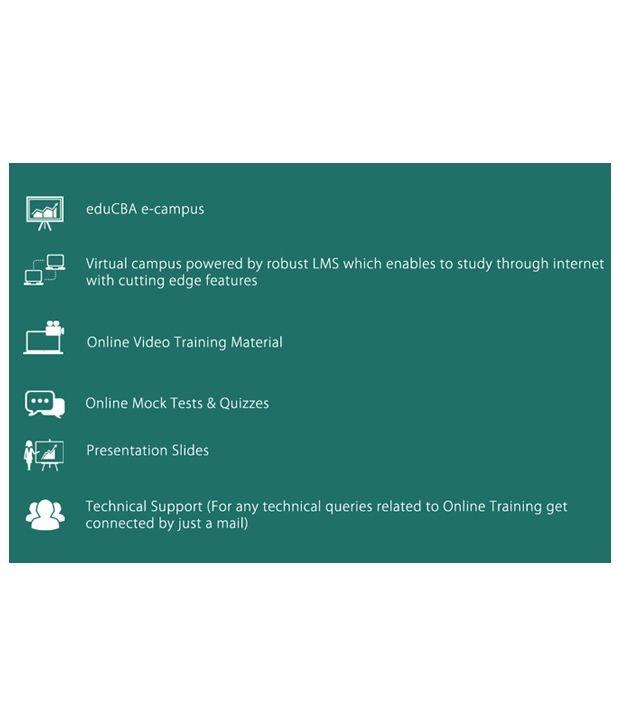Something went wrong. Please refresh the page and try again.
Something went wrong. Please refresh the page and try again.
Notifications can be turned off anytime from settings.
Item(s) Added To cart
Qty.
Something went wrong. Please refresh the page and try again.
Something went wrong. Please refresh the page and try again.
Exchange offer not applicable. New product price is lower than exchange product price
Please check the updated No Cost EMI details on the payment page
Exchange offer is not applicable with this product
Exchange Offer cannot be clubbed with Bajaj Finserv for this product
Product price & seller has been updated as per Bajaj Finserv EMI option
Please apply exchange offer again
Your item has been added to Shortlist.
View AllYour Item has been added to Shopping List
View AllSorry! PMI-ACP Exam Prep - PMI Agile Certified Practitioner (e-Certificate Course)-Online Video Training Material, Technical Support, Verifiable Certificate is sold out.





You will be notified when this product will be in stock
| Syste m (Hardware/Software) Requirements | |
| Operating Software | Windows XP or Higher |
| Processor | Minim um P4 or Higher |
| RAM | 1 GB or Higher |
| Browser | Any |
| Recommended Internet Speed | Minimum 1MBPS |
| Supported Browser Plug-ins | * Updated Flash Player, * Update Java |
| Other Requirements | Speaker or headphone |
Prdocut Description
Take this PMI ACP Exam Prep if:
• You are looking to demonstrate your level of experience and knowledge of managing agile projects.
• You want to increase your knowledge and understanding of how Agile is applied and practiced.
• You want a certification that is more credible than the existing entry-level offerings.
PMI administers PMI-ACP certification, which is the most popular agile certification for agile practitioners. Agile practices are being adopted in many industries across the world. Specifically the software development industry has embraced this concept in a big way leading to better success on projects. The future looks extremely promising for agile proponents. PMI-ACP certification is focused on the understanding of agile principles and practices that enables projects to provide business value in an incremental fashion. PMI recommends 11 reference books for study and the exam consists of answering 120 multiple choice questions in 3 hours. Take up this complete course package and get the most definitive edge required to pass Project Management Institute's Agile Certified Practitioner (PMI-ACP) exam!. Educba help aspirants in their exam preparation journey towards PMI-ACP certification.
Benefits of PMI-ACP Certification:
• Globally recognized certification from Project Management Institute
• Better job prospects, possibly leading to higher salary
• Demonstration of agile knowledge including theory and practices
Steps to attain PMI-ACP Certification
Step 1: PMI-ACP Application Submission: Candidates can either submit PMI-ACP certification online or get printable application form from pmi.org. Once you start with the online PMI-ACP certification, you need to complete the application form and submit it within 90 days.
Step 2: PMI-ACP Application Review Process: PMI takes 10 days to review online ACP forms, 10 days to review paper ACP forms submitted by individuals and 20 days to review paper ACP forms submitted by corporates.
Step 3: PMI-ACP Payment Process: Candidates can process the payment online using credit card, send check or money order by mail or complete a wire transfer of payment to PMI.
Step 4: PMI Audit Process: Candidates need to submit PMI audit materials including supporting documents such as diploma certificate, experience letters, contact hours certificate to PMI, once their application is accepted within 90 days. PMI takes about 5 to 7 days to complete the audit process.
Step 5: Attend the Exam: Attend PMI-ACP exam comprised of 120 questions with 3 hours allotted time.
Step 6: PMI-ACP Certification: The name of pass candidates is displayed on the PMI website within a couple of days and the certificate is delivered within 4 weeks' time period approximately.
Disclaimer: "PMI", "PMI-ACP" are registered marks of the Project Management Institute, Inc.
Course Curriculum
Section1:PMI ACP Introduction
Section2:Agile Framework and Terminology
Section3:Agile Manifesto Values & Principles
Section4:ACP Stakeholder Manegement
Section5:Agility, Stakeholder Management - Practice Q&A
Section6:Initiation
Section7:Initiation- Practice Q&A
Section8:Release Planning
Section9:Release Planning Practice Q&A
Section10:Iteration Planning
Section11:Iteration Planning - Practice Q&A
Section12:Execution
Section13:Execution - Practice Q&A
Section14:Iteration Review
Section15:Iteration Review - Practice Q&A
Section16:Building High Performance Teams
Section17:Team Building - Practice Q&A
Section18:A Catalog of Agile Methods
Section19:Agile Methods - Practice Q&A
Section20:PMI ACP Special Topics
Section21:PMI-ACP Special Topics Practice Q&A
Section22:PMI-ACP Certification Process
Section23:PMI-ACP Conclusion
Benefits
USP of the product
How to use? (Steps to use Study Material)
To get more information, you may want to watch the video below
The images represent actual product though color of the image and product may slightly differ.
Register now to get updates on promotions and
coupons. Or Download App